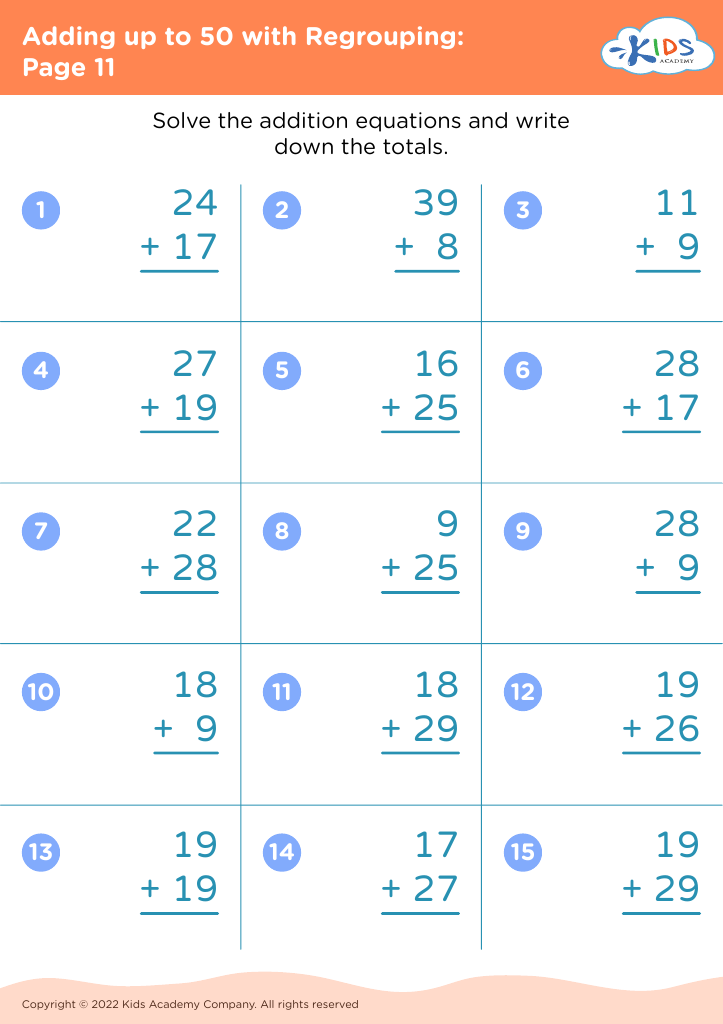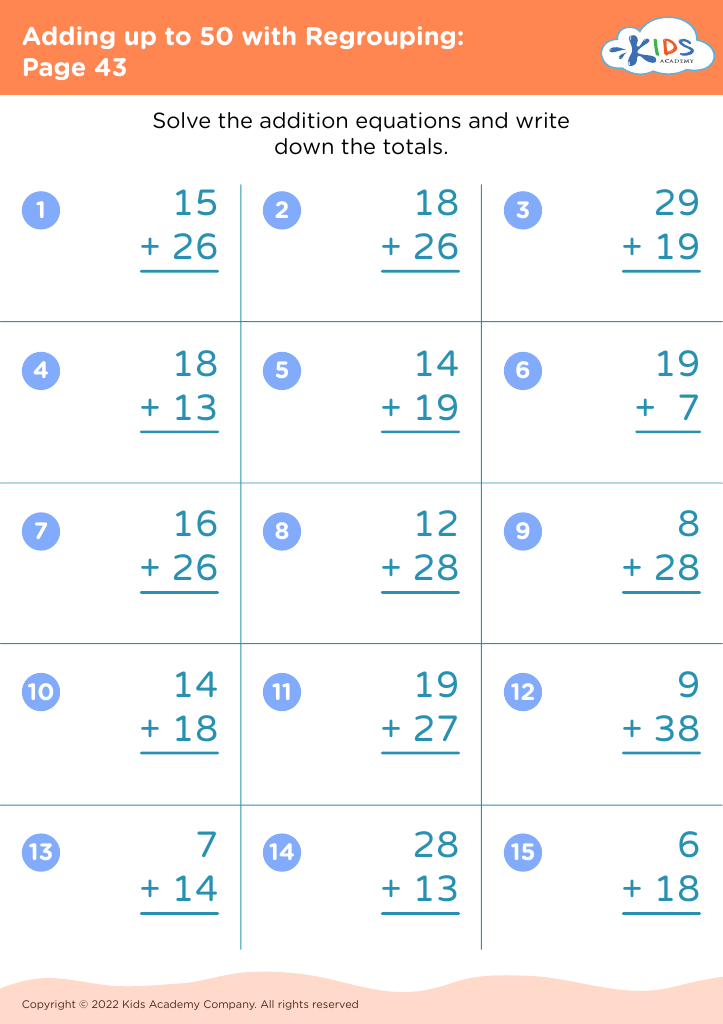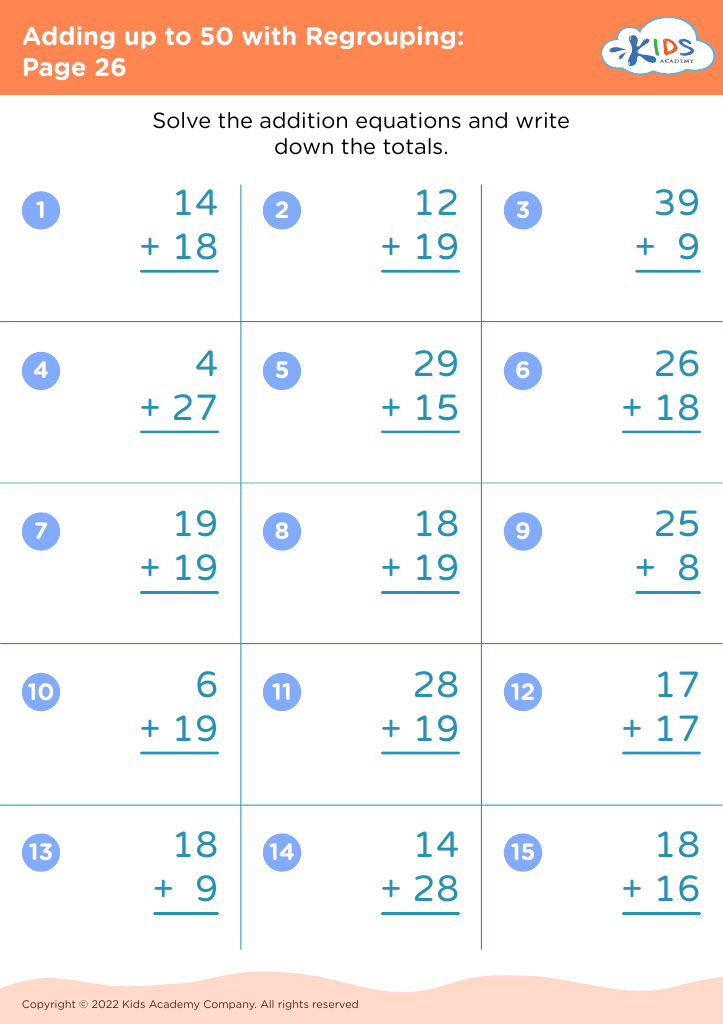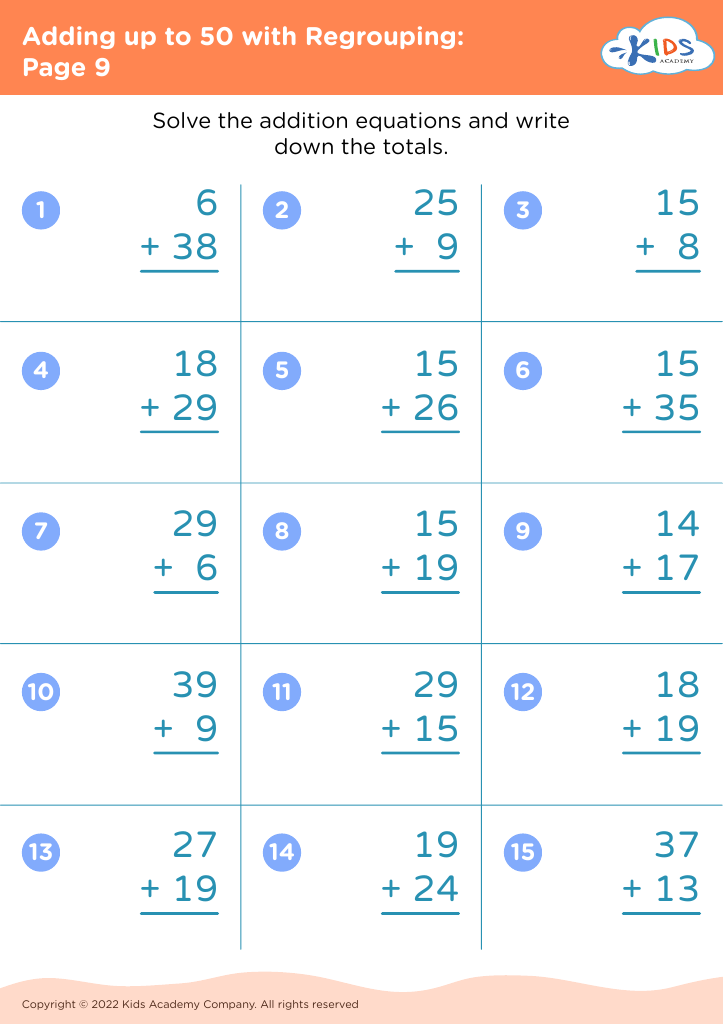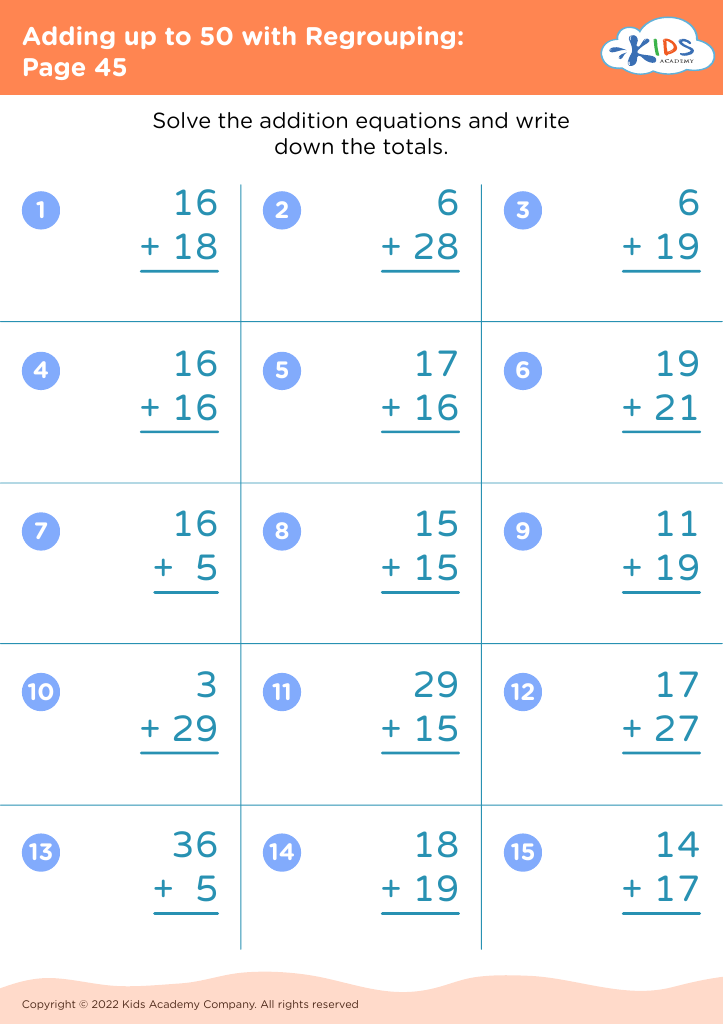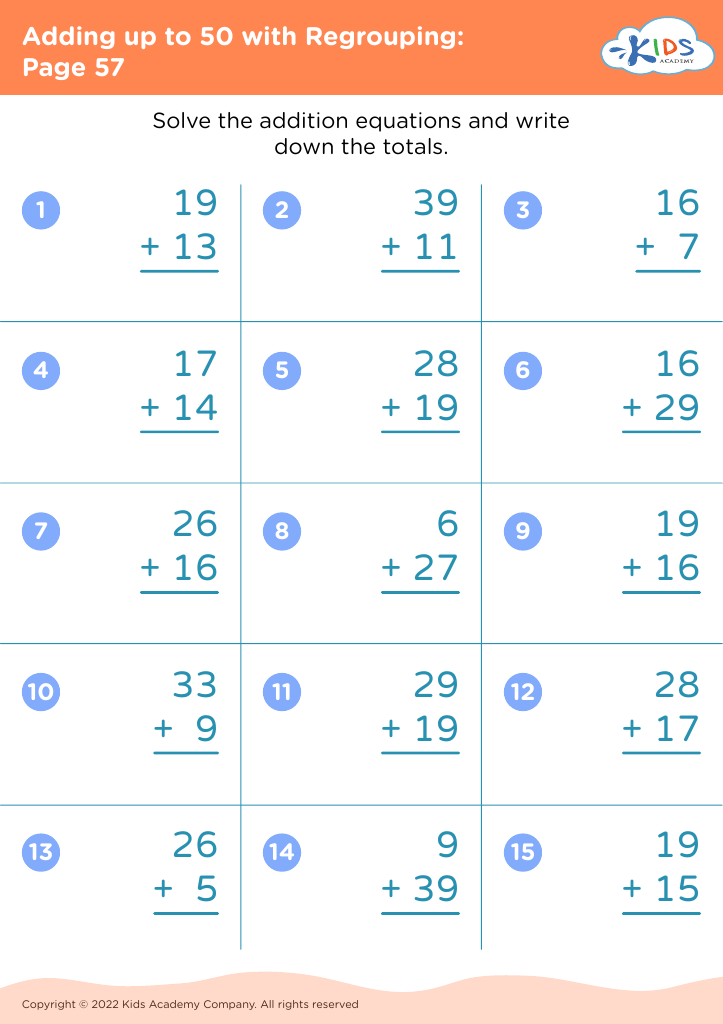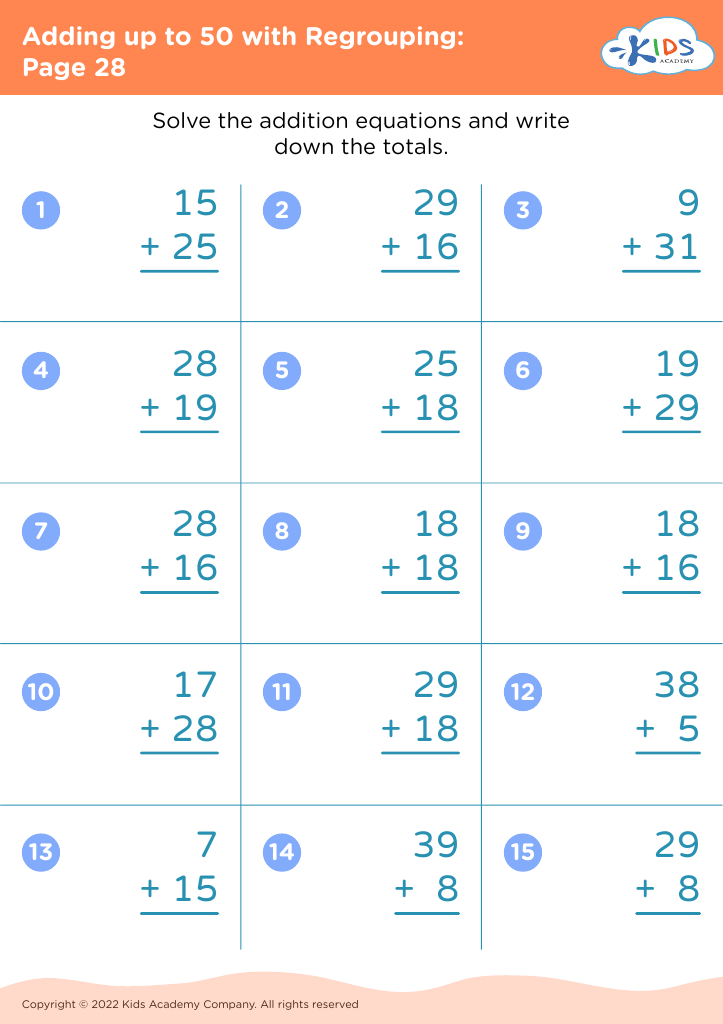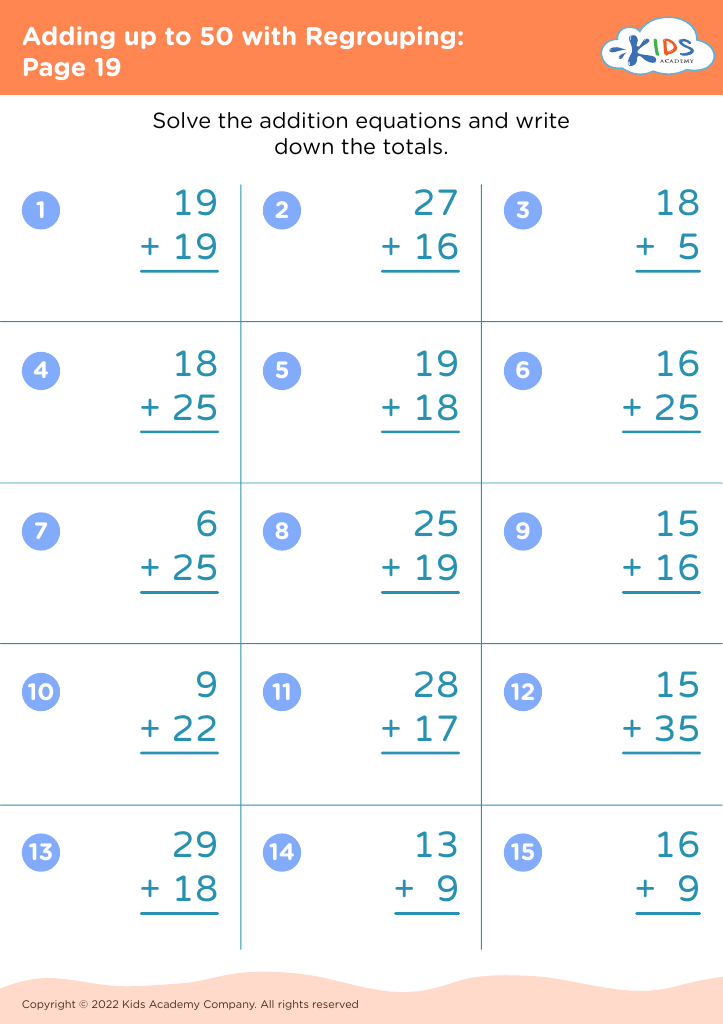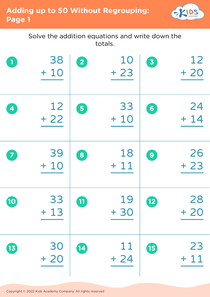Number Recognition Adding up to 50 with Regrouping Worksheets for Ages 6-7
14 filtered results
-
From - To
Discover our engaging "Number Recognition Adding up to 50 with Regrouping Worksheets" designed for kids aged 6-7! These worksheets provide fun and informative ways to help young learners grasp the concept of number recognition and addition, specifically focusing on sums up to 50 that involve regrouping. Each worksheet includes vibrant illustrations and engaging problems that make learning enjoyable and effective. Kids will enhance their mathematical skills, improve concentration, and build confidence as they work through various exercises. Perfect for classroom or home use, these worksheets will empower your child to excel in their math journey and develop a solid foundation in mathematics.
Number recognition and understanding the concept of addition up to 50 with regrouping are fundamental skills for children aged 6-7 that lay the groundwork for future math competence. Mastering these concepts not only helps young learners perform calculations but also strengthens their overall confidence in handling mathematical problems.
Firstly, number recognition develops a child's ability to understand and manipulate numbers, which is crucial as they expand into more complex arithmetic. Being comfortable with numbers sets the stage for advanced mathematical operations and fosters a positive learning experience.
Additionally, regrouping is a critical skill that teaches children how to manage carries in addition, which is essential for solving problems involving larger numbers. This understanding is beneficial for real-life situations, such as budgeting or calculating scores, making math relevant and practical.
Furthermore, improving number recognition and addition skills promotes cognitive development, enhances problem-solving abilities, and encourages logical reasoning. Teachers and parents play a pivotal role in nurturing these abilities by providing engaging activities and supportive environments that motivate children.
Ultimately, fostering strong foundational skills in mathematics helps build a solid academic foundation, allowing students to succeed not just in math, but across all areas of learning.


